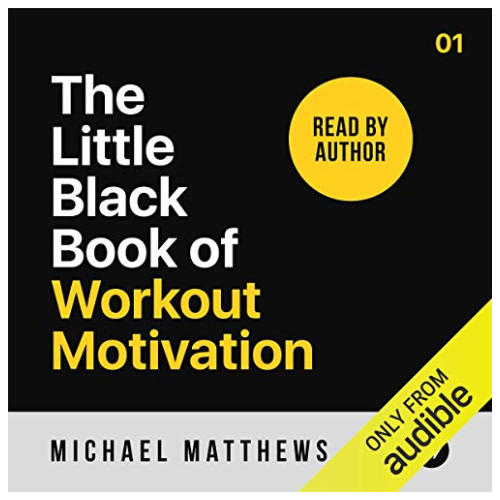In today’s post, you’ll be presented with an article that effectively underscores the importance of establishing and sticking to a fitness routine. Indeed, this post is tailored to shed light on the myriad of physical, psychological, and emotional advantages that can be reaped from maintaining a regular workout regimen.
From improved cardiovascular health to enhanced mental fortitude, you can anticipate learning how a structured fitness routine can radically transform your life. The article also offers practical tips on how you can embed physical activity into your daily routine seamlessly.

The Relation between Consistent Fitness Routines and Physical Health
You’re embracing a consistent fitness routine rewards you with many physical health benefits. The idea is to empower your body to function optimally, resist preventable health conditions, and equip it with the necessary strength to withstand life pressures. Let’s explore some of the core physical health benefits you can garner from consistent fitness routines.
Improved Cardiovascular Health
Physical training aids in enhancing the health of your cardiovascular system. Frequent workouts tend to increase your heart rate, strengthening the heart muscles. A strengthened heart has the capacity to pump blood more efficiently, thus reducing the strain on your cardiovascular system and lowering the risk of heart disease.
Weight Management
Consistent workout routines are crucial in maintaining a healthy weight. Training aids in burning calories, which is paramount in weight loss and management. Regular exercise can also regulate your metabolism, further assisting you in managing your weight effectively.
Strengthened Muscles and Bones
Engaging in regular fitness routines can also lead to stronger muscles and bones. Weight-bearing and resistance exercises, such as weight lifting or bodyweight exercises, are particularly effective at promoting bone density and muscle strength. These benefits can help you to maintain your physical vitality as you age.
Boosted Immune System
Physical training routines are integral in boosting your immune system. Regular exercise promotes efficient blood circulation, which allows immune cells and substances to move through your body freely to perform their functions optimally. This can help protect you against common illnesses.

Mental Health Benefits of Regular Exercise
Physical fitness practices can, in turn, support robust mental health. The brain and the body are interconnected; thus, caring for one enhances the health of the other.
Increased Happiness and Reduced Depression
One of the remarkable benefits of regular training is its ability to alleviate symptoms of depression and improve overall mood. Exercise prompts the body to produce endorphins, also known as “feel-good” neurotransmitters, that can create feelings of happiness and euphoria.
Stress Reduction
Consistent fitness routines can also contribute to stress reduction. Exercise promotes the production of neurotransmitters such as norepinephrine and serotonin, which have been linked to mood stabilization and the brain’s stress response.
Improved Self-confidence
Regular fitness routines can significantly enhance your self-confidence. By committing to a consistent workout schedule, you can improve your physical appearance and strength, effectively improving your self-image and boosting your confidence.
Mood Enhancement
Physical exercise can serve as a potent mood enhancer. Engaging in just 30 minutes of exercise can elicit emotional responses that induce a sense of relaxation and optimism.

The Connection between Fitness and Improved Sleep Patterns
Consistent fitness routines can significantly improve your sleep patterns. Here’s how:
Enhanced Quality of Sleep
Physical activity increases body temperature, a factor that can promote sound sleep. Regular physical exercise also helps reduce insomnia by decreasing arousal, anxiety, and depressive symptoms.
Promotes Deeper Sleep
Research has shown that regular exercise promotes deeper sleep. Deep sleep is a vital component of the sleep cycle that allows the body and brain to rejuvenate.
Helps Regulate Sleep Cycle
Working out can help you realign your internal body clock, also known as the circadian rhythm, steering you towards more regular, healthy sleep patterns.

Impact of Fitness on Overall Life Quality
The benefits of engaging in regular physical activity extend far beyond weight management and physical health improvement. Fitness practices can impact your overall quality of life positively.
Increased Energy Levels
Regular exercise routines can significantly improve your energy levels. This is because physical activities enhance your cardiovascular system’s efficiency, enabling your heart and lungs to work better, thus providing you with more energy to do your daily tasks.
Improved Cognitive Function
Consistent training is known to improve cognitive function. Through improved cardiovascular health and increased blood flow, exercise aids in supplying more oxygen to the brain, which is crucial for the efficient functioning of your cognitive capabilities.
Enhanced Life Expectancy
Regular physical exercise can lead to improved life expectancy. Given its role in maintaining weight, improving cardiovascular health, and boosting the immune system, it’s unsurprising that physical fitness is linked to longevity.
Promotion of Better Life Choices
By adapting to regular fitness routines, you may make more health-conscious decisions. This can include diet, sleep, and other lifestyle choices that significantly influence your overall health.

The Effect of Fitness on Chronic Disease Management
Regular exercise is a critical part of managing and even preventing chronic diseases. Let’s delve into how:
Management of Diabetes
Fitness practices can facilitate the management of diabetes by helping to regulate blood glucose levels. Regular exercise aids in the consumption of glucose by engaging your muscles, reducing its amount in the bloodstream.
Control of Hypertension
Regular workouts help to lower blood pressure in people with hypertension. Consistent physical activity makes your heart stronger. A stronger heart can pump more blood with less effort, reducing the force on your arteries and lowering your blood pressure.
Improved Heart Health
Engaging in regular physical activity helps to prevent and manage heart disease. It aids in maintaining cholesterol and blood pressure levels while boosting overall cardiovascular health.

Importance of Establishing Specific Fitness Goals
Establishing specific fitness goals enhances the effectiveness of your fitness journey. Here’s how:
Setting Measurable Objectives
Setting measurable fitness objectives is key to tracking your progress. It allows you to evaluate your achievement over time and motivates you to keep going.
Maintaining Motivation
Having specific fitness goals can help sustain your motivation throughout your fitness journey. The sense of achievement you get from meeting these goals can foster your determination to stick with your routine.
Achieving Long-term Goals
Specific fitness goals confer a sense of direction, fostering a long-term commitment to physical fitness. This consistency eventually leads to fulfilling your long-term goals enhancing your physical and mental health.

Influence of Fitness on Self-Discipline and Other Life Aspects
Regular fitness routines can significantly influence your self-discipline, among other vital life aspects.
Promoting Self-discipline
Fitness routines demand discipline, consistency, and commitment – qualities that can apply to various aspects of your life beyond fitness.
Developing Time-management Skills
Since regular exercise requires you to make time for workouts, it may also improve your time management skills, balancing your fitness journey with other life responsibilities.
Impact on Work or Academic Performance
Physical activities stimulate brain function, improving concentration, memory, and cognitive performance. This can impact positively on your work or academic performance.

Choosing the Appropriate Fitness Routine
Selecting a fitness routine that fits your interests, needs, and limitations is crucial to facilitate consistency and prevent injuries.
Identifying Personal Interests and Preferences
Your chosen fitness routine should align with your personal interests and preferences. Enjoying your activities boosts your motivation and commitment to stick to your routine.
Combining Different Types of Exercise
A well-rounded fitness routine includes a mix of strength training, cardio, and flexibility exercises to ensure your body’s overall fitness. Different types of exercise offer varying benefits, so a combination can help you achieve a balanced routine.
Considering Health and Physical Limitations
Before starting any physical workout routine, it’s crucial to consider any existing health or physical conditions. Consulting with a health professional can provide personalized advice and guidelines to ensure safe and effective practices.

Understanding the Role of Rest in Fitness
Rest is integral to your fitness routine as it allows your body to recover and prevent injuries.
Ensuring Adequate Recovery Time
Taking sufficient rest after workouts allows your body to repair and grow stronger. During these times of rest, the benefits of physical training are fully realized.
Preventing Over-exertion and Injuries
Rest is crucial to prevent over-exertion and injuries. Without adequate rest, the body cannot replenish energy stores and repair damaged tissues, increasing the risk of injury.
Balancing Exercise and Rest
It is essential to strike a balance between exercise and rest. While regular exercise is critical for physical health and fitness, taking regular breaks ensures that your body has sufficient time to heal and regenerate.

Role of Nutrition in Support of Fitness Routine
Nutrition is fundamental in getting the most out of your fitness routine and achieving your fitness goals. Below, you’ll find some brief information on this topic; however, if you want more in-depth information about diet and nutrition, click this link to check out all our articles covering this particular subject.
Choosing a Healthy and Balanced Diet
Choosing a healthy and balanced diet is essential for providing the nutrients your body requires to perform, recover, and grow stronger from your physical activities.
Understanding the Importance of Hydration
Staying hydrated is paramount, especially during exercise, to replace the fluids lost through sweating. Hydration aids in maintaining body temperature, improving performance, and reducing the risk of dehydration and other heat-related illnesses.
Role of Supplements in Fitness Routine
While a well-balanced diet should provide you with all the nutrients you need, certain supplements can support your fitness routine, especially if you’re engaged in intense workouts. Always consult a healthcare professional before starting any supplement regimen.
The benefits of establishing a consistent fitness routine are diligence and mindfulness. It’s a perfect way to take control of your physical and mental well-being, manage stress effectively, prevent chronic diseases, and enhance your overall quality of life. Remember, the journey to better health starts with that one step—make it count.

Establishing a Fitness Routine: Key to a Healthier Life
In conclusion, the journey of establishing a fitness routine offers immense benefits, spanning physical health, mental wellness, and improved quality of life. We’ve delved into how regular exercise can transform your life, from enhancing heart health and managing weight to boosting mental health and sleep quality.
As you embark on or continue this journey, remember the importance of consistency, balanced nutrition, and rest. We’d love to hear your thoughts and experiences in the comments. Don’t forget to share this valuable information with friends and family on social media. Above all, stay committed to your health and well-being – your future self will thank you!

